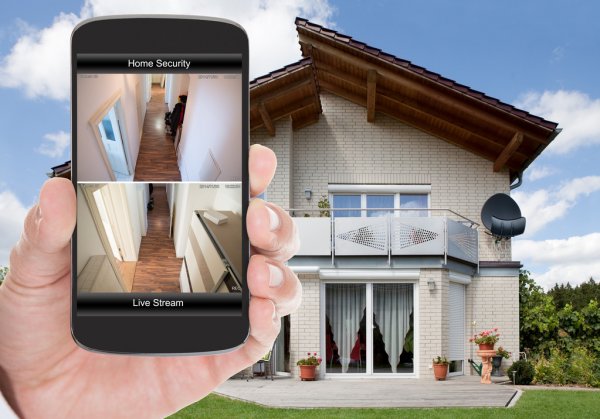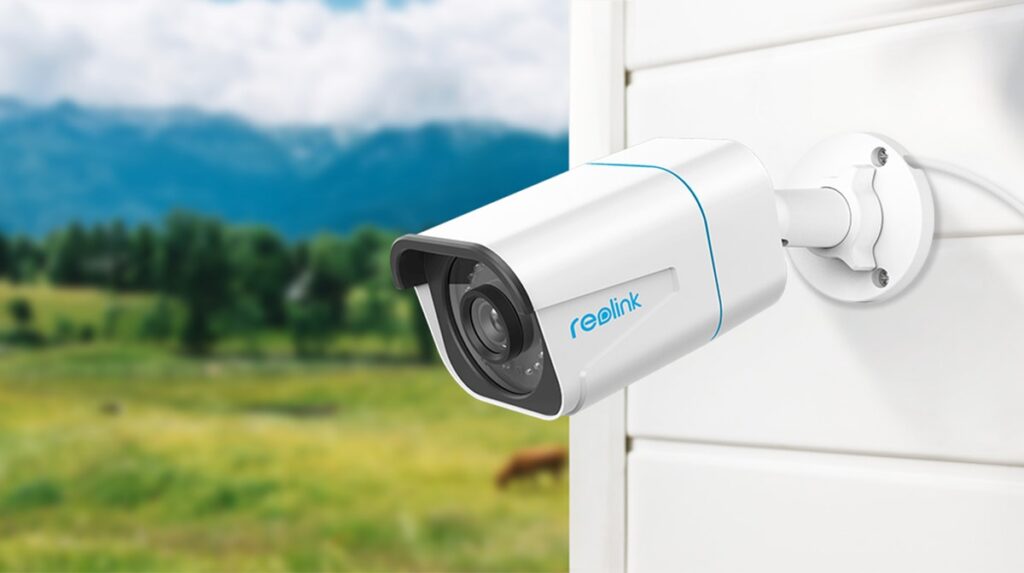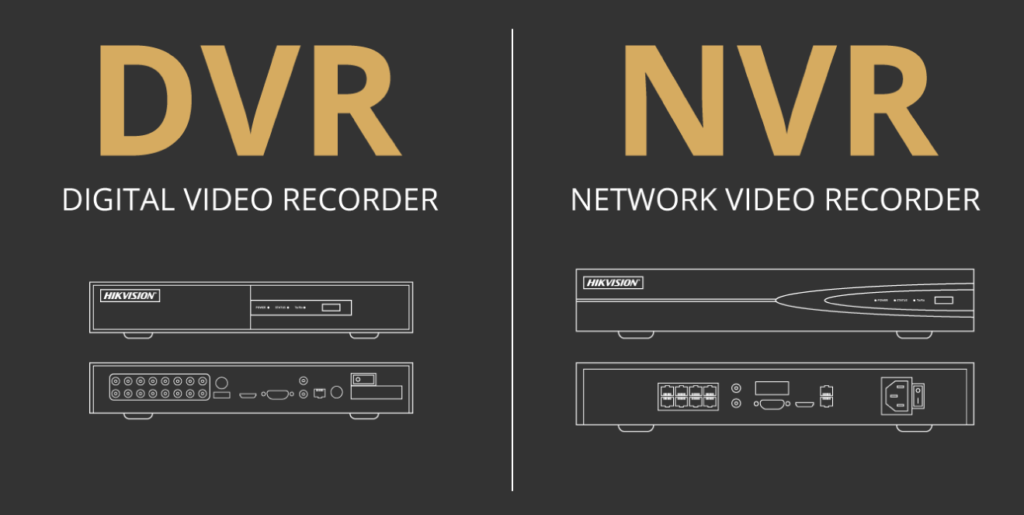The Best NVR Camera System for Every Need and Budget
A good home security system is an essential part of your smart home set-up. Not only does it provide real time monitoring to notify you of intrusions, but it also serves as evidence, in case of an incident. Here we review the best NVR camera system for your home.
Our Top Picks:
- Best Overall: REOLINK 5MP 8CH NVR with 2TB HDD
- Best 4K: REOLINK H.265 4K PoE Security Camera System
- Best Budget Wired: ZOSI 1080p H.265+ PoE NVR Camera System
- Best Budget Wireless: Hiseeu Wireless Security Camera System
Best NVR Camera System
Best Overall: REOLINK 5MP 8CH NVR with 2TB HDD
A well-balanced NVR camera system that does not skimp on features despite the reasonable price tag. The 5MP picture quality is more than what’s needed for any home security solution. The IP cameras can identify human and vehicle movement accurately. Whether you can identify faces or vehicle registration plates, will depend on daylight and the viewing angle. The picture quality is supported by the 25fps rate unlike most NVR cameras that max out at 15fps.
The installation process is as straightforward as it gets. The NVR device and the cameras are pre-linked at the factory so all you do is plug in the included ethernet cable to the NVR and the cameras. The NVR will recognize and add the cameras as soon as you plug them in and if you need remote viewing, connect the NVR to your router and power up the Reolink App on your smartphone. Reolink currently doesn’t support browser monitoring but you can download the desktop software to enjoy all the features of the device. Some customers have complained that the software is not user friendly – at least until you get used to the interface.

Overall this is the best NVR camera system that we have reviewed. The only thing that would make it better is 4K picture quality. However, that would mean a much larger storage footprint and a price tag to match.
Pros:
- Excellent price to value.
- Integrated PoE switch
- 25fps video recording
- Extensive motion detection settings
- Easy set-up and installation.
Cons:
- Desktop software isn’t the most user-friendly.
- No remote access via browser
Best 4K: REOLINK H.265 4K PoE Security Camera System
If higher picture quality is important, Reolink has another winner in the list. With 4K Ultra HD picture quality you can view crystal clear detail even when you digitally zoom in. Combined with the motion detection adjustments, these 4K cameras will minimize false motion alarms and provide only the necessary notifications to your smartphone. Identifying vehicle registration plates and human faces becomes a lot easier with 8MP 4K video quality.
Reolink uses top encryption algorithms for their home security systems making unauthorized access extremely hard. This will come in especially handy if you have your system connected to the internet for remote surveillance.
Unfortunately higher picture quality means more storage space. There is built-in 2TB of storage but that will not last you as long but you can always add an external hard drive to expand the storage by up to 12TB. What would have helped is H.265 compression which reduces the file sizes by half without losing any of the video clarity. However, after initially promising this as a software upgrade, Reolink has since delayed the launch indefinitely.

Despite the transgression, this remains the best 4K NVR camera system on the market today.
Pros:
- 4K Ultra HD picture quality
- 2048-bit RSA, 128-bit AES-GCM encryption.
- Micro SD card support
Cons:
- No software support for H.265 compression.
- Overseas tech support
You may also like:
- Best Unmonitored Home Security Systems of 2021
- Looking for a secure alarm system on Amazon?
- Best Outdoor Cellular Security Camera No WiFi Needed
- Best security cameras without WiFi 2021
Best Budget Wired: ZOSI 1080p H.265+ PoE Home Security Camera System
With a slight compromise on video quality you get an NVR camera system that is 30% cheaper than any comparable model. ZOSI has added the best and most essential features into a well-built and affordable package.
You get H.265+ proprietary video compression technology that reduces the file size of recorded footage by nearly 50% without decreasing any of the quality. And with 5MP crystal clear recording, this compression becomes quite useful.
Besides 24/7 continuous recording you also get advanced motion detection and notifications. Plus the four included cameras can be customized individually. So you can set up one of the cameras to continuous recording and another one to motion detection only. You can upto 4 more cameras to the system for even better coverage around your property.
Pros:
- H.265+ high efficiency video compression.
- Excellent build quality.
- Individual camera set-up.
- Excellent customer service.
Cons:
- H.265+ doesn’t support WiFi connections.
- No pan and tilt.
- Limited motion detection settings.
- App interface is not user-friendly.
Best Budget Wireless: Hiseeu Wireless Security Camera System
All the benefits of a good NVR security system without any of the wiring. You will need to power the cameras through a plug point but apart from that there are no cables between the NVR unit and the cameras. The wireless connection was found to be quite reliable even in extreme weather conditions.
The build quality on the cameras and the NVR unit is surprisingly good for the price and the cameras perform well in outdoor weather conditions. This is matched by the quality of the lens as well because 2K clarity is a lot better than 1080P HDl, even when it is night mode.
Unlike more expensive cameras, the Hiseeu EseeCloud App is free to use and can be used to monitor and control your cameras remotely. There is no monthly subscription fee to use this service.
But the most important feature has to be AI human detection. In our tests, the cameras performed well when differentiating between human and inanimate motion. The number of false motion notifications from clouds and tree leaves have been drastically reduced.
Pros:
- AI human detection
- 2K Ultra HD video with H.265+ compression.
- IP66 weatherproof
- Individual motion sensitivity
Cons:
- No fast forward on recorded video.
- iOS app is not well developed.
- No wide angle view.
Difference between DVR and NVR

NVR systems work with the more advanced IP cameras and DVR systems work with analog camera systems. The main difference between analog and digital cameras – apart from the obvious video quality – is that analog cameras transfer raw video over the co-axial cables to the DVR system which then processes the footage for viewing. The modern IP cameras have the ability to process videos before transferring them via the ethernet cable or wirelessly through a private WiFi network.
DVR systems are typically used without internet. However, you could connect a DVR to the internet through a LAN cable or wirelessly by using a wireless bridge. NVR systems are capable of connecting to the internet through an ethernet cable or via the inbuilt WiFi card.
What are the makings of the best NVR camera system?
Picture quality: Most IP cameras have at least 1080P HD quality video. You could one rung higher and get a 4MP camera system that has excellent picture quality even during the darker hours. You can identify faces and in some cases vehicle registration plates, as long the car is not moving too fast. However, the best NVR cameras have 4K or 8MP video quality. This is the ultimate in how clear a security camera image can get. This does take double the storage capacity so there is a tradeoff here.
Storage Capacity: Typically you get 1TB to 2TB of internal storage. This is usually expandable with an external hard drive but that usually has an upper limit. The higher your image quality, the more storage space you will need. Keep this in mind when choosing the camera quality. Under default settings, once the hard drive has reached capacity, the NVR system will stop recording any new video. To avoid this, remember to program your system to delete the oldest footage to record new data.
Wired v/s wireless: Contrary to popular opinion, there is no difference in the picture quality between a wired and wireless NVR camera system. It’s mostly a point of personal preference. Wired systems do tend to be more reliable – at least outdoors – than a wireless system.
Connected v/s Offline: NVR systems are mostly used as an offline recording device as they record 24/7 video. If you need remote surveillance and monitoring, there is always the option to connect your NVR device to the internet via a LAN cable or through the in-built WiFi.




